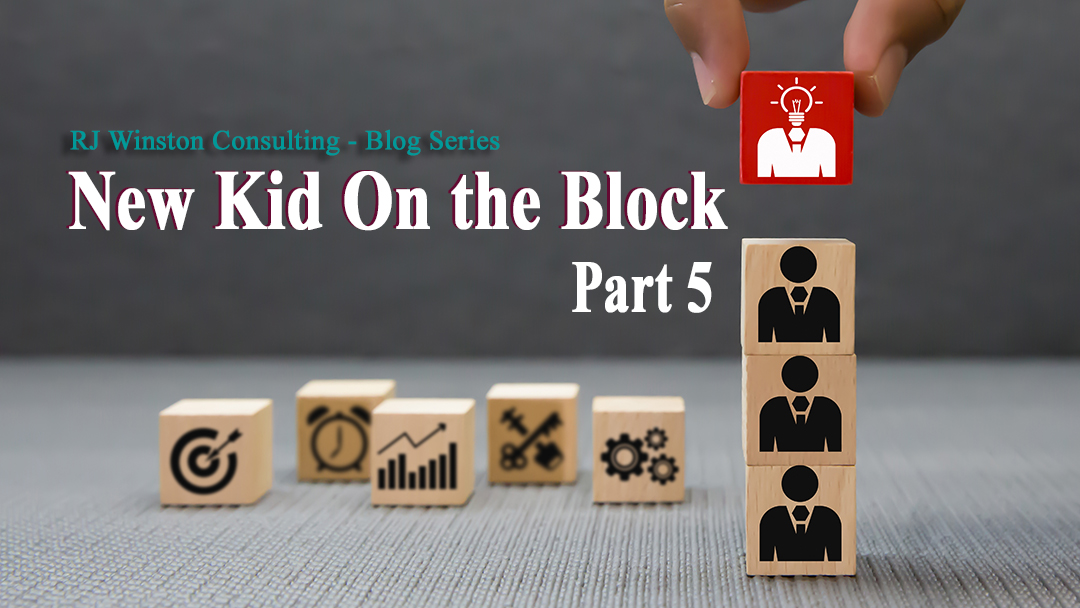Why an Executive Coach is NOT a Teacher – Onboarding Advice for New Employees
What is the best advice for C-Level Leaders? Consider the difference between a coach and a teacher. In practice the two functions overlap, but the distinction between the two is real. In essence a teacher is helping a student learn something he or she did not know before the subject was introduced by the teacher. A coach, on the other hand, works with a student who is already familiar with the subject, sometimes at an expert level, and whose goal is the improvement of performance. Performance is, in this case, being defined as the skilled application of knowledge.
So, you have a nice fast ball and two times out of three you can put it over the plate and past the batter. The fourth time, however, when the batter has had a chance to become familiar with your speed and adjust to it, he knocks it out of the park. You need a curve, or a change-up, or a knuckle ball. You need a coach. You know how to throw a ball, now you need to learn how to throw it in a particular way to suit circumstances.
Want more good (almost invaluable) advice? Coaching also goes beyond the physics or the circumstances of applying a skill. Anyone who has watched Tiger Woods struggle lately appreciates this. Anyone who has watched a basketball player who can hit from anyplace on the court while flying through the air, or falling, and with a larger man draped over him and then watched the same player have difficulty hitting the basket unmolested from the free throw line, appreciates the role of the mental state of the player in performance. Sometimes the mental state of the performer is the greatest impediment to skilled performance. And sometimes the greatest advantage a competitor can have is affecting the mental state of an opponent.
In an earlier article I spoke of the advantage David gained over Goliath by seeming to be hopelessly overmatched – a boy against a giant, a warrior against a shepherd. Joe Namath used the same bravado against the Baltimore Colts in the Super Bowl. A young Cassius Clay used it against Sonny Liston. And while the real weapons were speed and novel weaponry they were complemented by an inexplicable confidence that befuddled the opponent. They messed with their opponent’s minds and they reinforced their own confidence.
On the other hand, confidence itself can be the obstacle. The Romans had a useful custom of reminding their successful generals that despite their victories and the accolades and honors heaped on them, that they were just men like any other. When a general returned to Rome, at the head of his army, victorious in battle, nearly deafened by the cheers of his fellow citizens, a single slave would continually whisper in the general’s ear, “Memento homo,” “Remember you are only a man.” Not a bad custom and one that sits comfortably next to the sign Harry Truman kept on his desk in the White House that said, “The buck stops here.”
Onboarding Advice – Tips for Success
- ONBOARDING ADVICE Tip #1 – PROCESS: The onboarding process should be an experience every new employee will appreciate, remember, and view as a positive experience. It is to the benefit of the employee and the corporation for HR to take time to come up with a detailed plan for each step on the onboarding process.
- ONBOARDING ADVICE Tip #2 – MULTI-MEDIA INTRODUCTION: Nothing kills the interest or enthusiasm of a new employee than being handed huge stacks of paperwork and worksheets the first day of hire. Using video, in person talks, classroom lectures, written presentations and online learning can help improve employee retention and make the onboarding process more engaging for your new team members.
- ONBOARDING ADVICE Tip #3 – FEEDBACK: You can never underestimate the value of employee feedback – even from a new employee on the first day. Even if your onboarding process is well structured, the opinion of the employee experiencing it is invaluable. Take time to gather and analysis feedback and continually improve the process.
- ONBOARDING ADVICE Tip #4 – REALISTIC JOB DESCRIPTION: Job descriptions and responsibilities that are not defined realistically during the onboarding process are a recipe for disaster (i.e., unhappy or disappointed employees leads to high turnover). Make sure your new team member knows what they are signing on for, what to expect from the position, and what they need to do to be successful in their new position.
- ONBOARDING ADVICE Tip #5 – PACE NEW EMPLOYEES: You should always consider new employee onboarding a marathon – not a sprint. Rushing new employees through the process can result in them missing out on valuable opportunities to bond as a new team member. You don’t want to force them to choose between mastering their job duties & accumulating to the corporate culture.
- ONBOARDING ADVICE Tip #6 – CULTURE: Every company has its own culture with unique language and jargon. Dropping new employees into the conversation without teaching them the “lingo” sets them up for failure. Make sure your new employee is educated on the corporate buzzwords, lingo, and acronyms. It is equally important to fill new hires in on any inside jokes, traditions, and other important bits of your company’s culture.
- ONBOARDING ADVICE Tip #7 – POSITIVE INTERACTION: The key to a new employee’s success is tied to their relationship & level of comfort with their immediate manager. Managers should be included in the onboarding process, and actively engaged in enabling the new employee’s success.
Read More in the “New Kid on the Block” Series
New Kids on the Block Part 1 – Onboarding Advice for New Employees – How to Succeed!
New Kids on the Block Part 2 – How Leaders Smoothly Integrate into a New Team
New Kids on the Block Part 3 – Do Your Executives REALLY Understand What Motivation Your Team Needs?
New Kids on the Block Part 4 – David and His Friend Goliath (The Part of the Story You Never Thought About)
New Kids on the Block Part 5 – Why an Executive Coach is NOT a Teacher
New Kids on the Block Part 6 – Your Part in the American Diversity
New Kids on the Block Part 7 – The Demise of the Least Common Denominator

About RJ Winston Consulting: Reginald Winston, CEO and founder of RJ Winston Consulting, Inc. has 25+ years’ experience in Organizational Development with a focus on Executive Coaching & Training, Team Building, Group Facilitation, Conflict Management, and Professional Life Coaching. Before consulting, Mr. Winston held positions in numerous large organizations including Ameritech, SBC, Motorola, Advocate Health Care, Corning Consumer Products and the Federal Reserve. In addition, Mr. Winston’s service in the US Marine Corps and assignments with the United States Department of State gives him a unique insight in the challenges management teams & leaders face in the expanding global world market.
Mr. Winston has extensive experience in working with Hospital Administrators and Senior Medical staff (doctors, nurses and executive-level hospital administrators) in a wide variety of hospital settings and departments. His experience also extends to the public & private sector, as well as industrial, manufacturing and corporate environments where he has provided coaching services to C-Level Executives, Mid-Level Directors & Managers and teams. Mr. Winston holds a Master of Science Degree in Organization Development (MSOD) from Loyola University, in Chicago, Illinois.
If you decide to take advantage of the Executive Coaching process, what should you expect? The RJ Winston Consulting Executive Coaching is an 8-Step process that begins with an in depth, one-on-one consultation with you to assess if we are the “right” fit for you. If, after our consultation, it is determined that RJ Winston is not the best coach for you, we will refer you to another Executive Coach from our professional network.
How long will the coaching process take? Because we tailor each of our coaching programs to our client’s unique needs & goals, there is not a specific time frame for coaching. However, for most clients the Executive Coaching process typically takes a minimum of 1 year. We meet once a week for an hour for the first 6 months, then every other week for the second half of the year.
To learn more about RJ Winston Consulting’s Executive Coaching services; download our Infographs: Benefits of an Executive Career Coach; Why Coaching Works
Ready to Schedule a Coaching Consultation? Just send us a consultation request:
SCHEDULE a C-Level Executive Coaching Consultation
SCHEDULE a Group Coaching Consultation
SCHEDULE a Conflict Management Consultation for your Team
SCHEDULE a Professional Life Coaching Consultation
Have a specific question? We are happy to answer. CONTACT RJ WINSTON CONSULTING. Visit our website: www.RJWinston.com or CALL: (708) 227-1254

